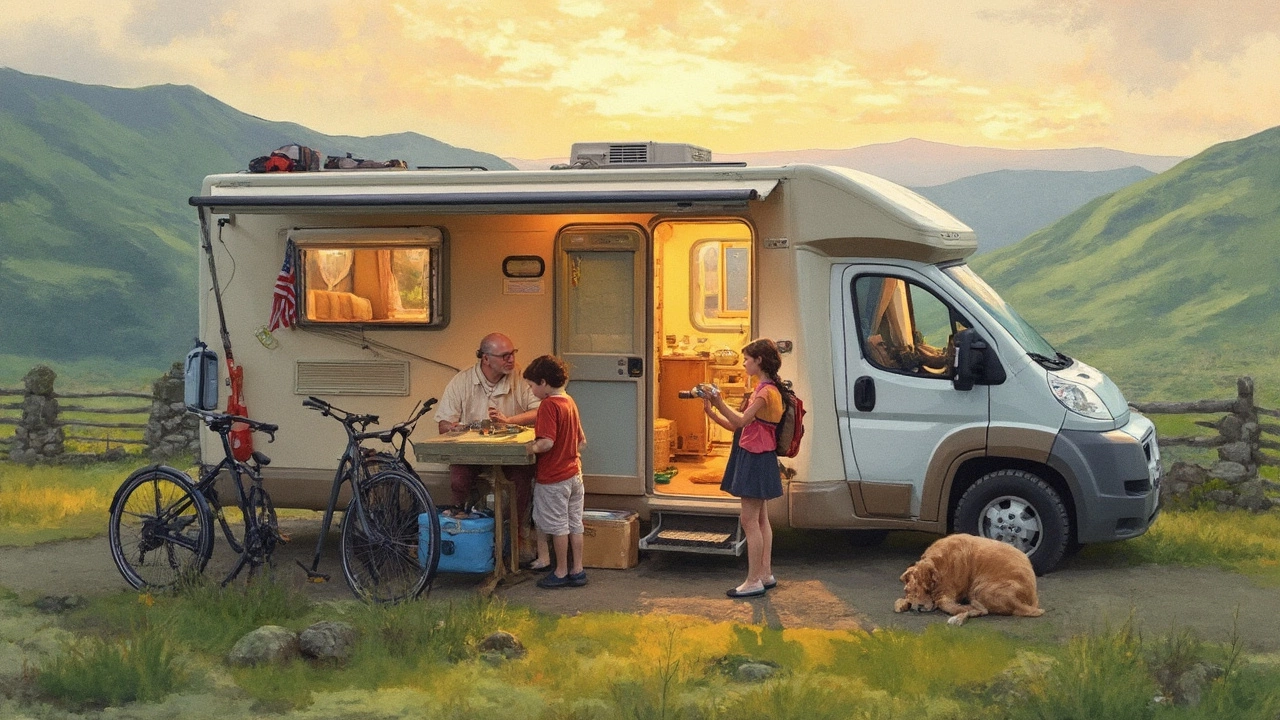Full Time Motorhome Living: What It Is and How to Make It Work
If you’ve ever dreamed of swapping a house for a motorhome, you’re not alone. More people are choosing to live on wheels full time because it promises freedom, lower bills, and endless scenery. But turning that dream into reality takes planning. Below are the basics you need to know before you lock the wheels and start living full time.
How Much Does It Really Cost?
The biggest question is money. A motorhome isn’t cheap, but you can spread the cost in a few ways. Buying a used model can save thousands compared to a brand‑new one. Think about financing or a loan if you need lower monthly payments. Then add insurance, road tax, and routine maintenance – usually $100‑$200 a month.
Fuel will be your biggest ongoing expense. A typical diesel motorhome gets 10‑12 mpg, so doing the math for your average mileage helps you budget. Some full‑timers offset fuel costs by boondocking at free sites or staying at supermarket parking lots like Walmart, which often allow overnight stays.
Don’t forget campsite fees. Private sites range from $20 to $50 per night, while wild camping spots in the UK can be free if you follow local rules. Mixing paid sites with free spots keeps the average cost down to around $100‑$150 a week for most families.
Everyday Life on the Road
Living full time means turning your motorhome into a home office, kitchen, bedroom, and bathroom all at once. Keep a simple routine: cook meals on a propane stove, use a portable washing machine, and set up a small desk for work or hobbies. Storage is limited, so pack only what you need and use vacuum bags to save space.
Internet access is crucial. Many full‑timers rely on mobile 4G/5G hotspots and a signal booster to stay online in rural areas. A good data plan can cost $50‑$80 a month, but it’s worth it for work, navigation, and staying in touch.
Safety isn’t optional. Always park in well‑lit areas, lock the doors, and have a fire extinguisher handy. A basic first‑aid kit and a reliable tire repair kit can save you headaches on remote stretches.
Most importantly, stay flexible. Weather changes, road closures, and campsite availability can throw a wrench in plans. Having backup sites and a flexible itinerary means you can adapt without stress.
Full time motorhome living isn’t a one‑size‑fits‑all lifestyle, but with the right budgeting, gear, and mindset, it can be a rewarding way to see the country. Whether you’re a solo traveler, a couple, or a family, the road offers a fresh perspective every day. Ready to roll?
-
 VIEW POST
VIEW POSTCan a Person Live in an RV Full Time? Pros, Reality, and Tips
May, 18 2025|0 CommentsThinking about ditching your regular home and living full time in an RV? This article digs into what RV life actually looks like day-to-day, covers real-world pros and cons, and dishes out honest tips for making it work. Get ready to find out if you need a special mindset, how much it really costs, and what you'll need to consider before you hit the road. Whether you're serious about it or just curious, you'll walk away knowing if the full-time RV life is for you. Bring your questions, your curiosity, and maybe your adventurous side.